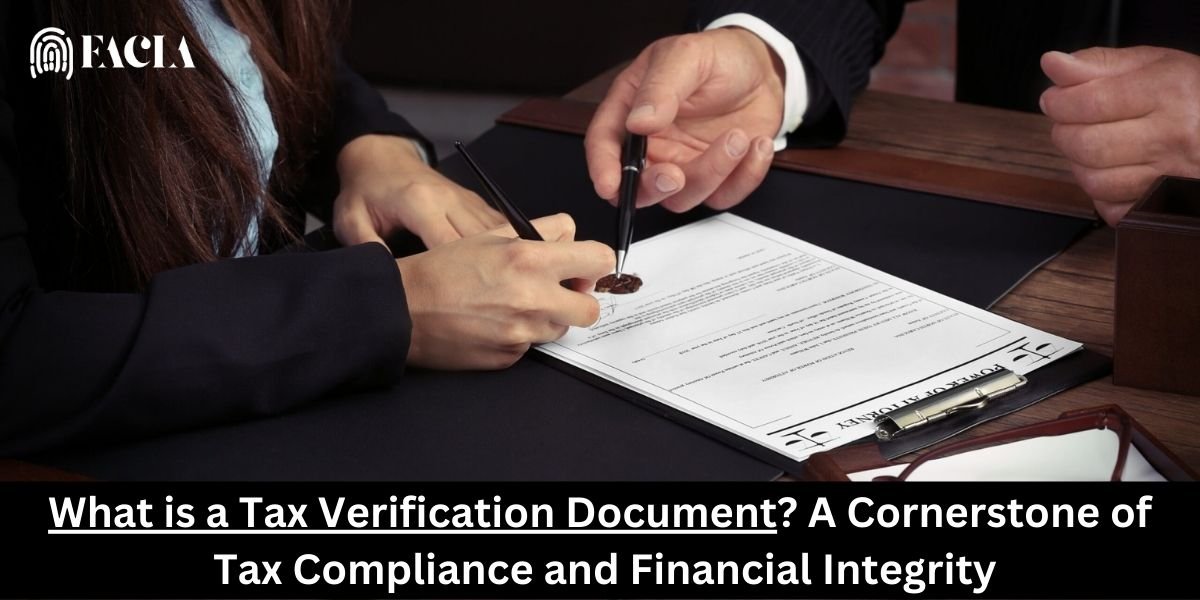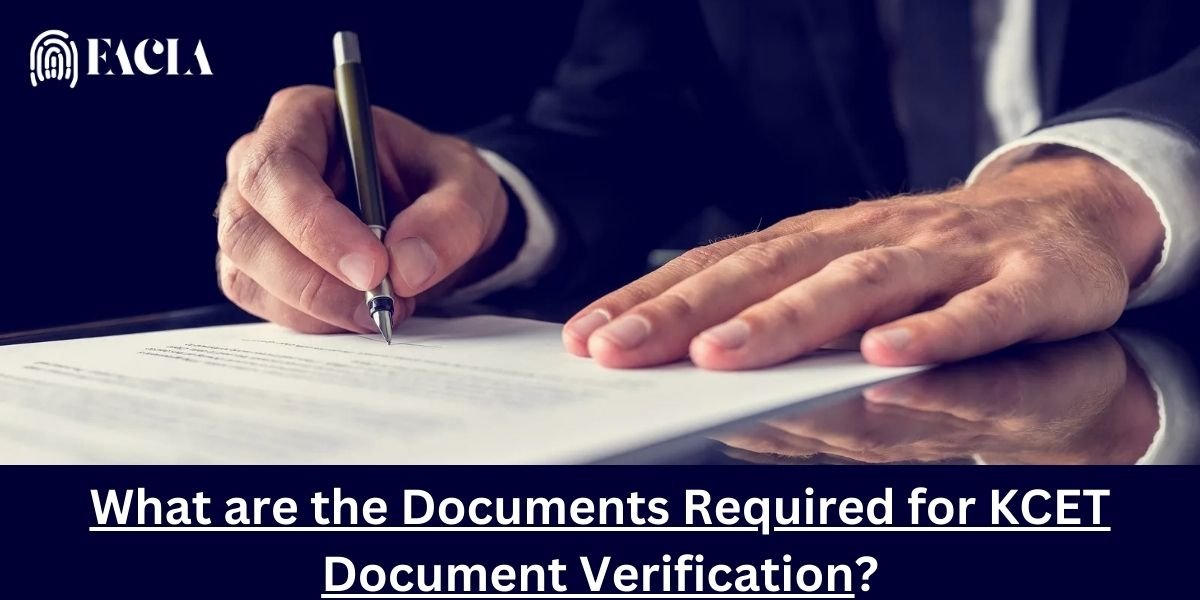A tax verification document is an official statement issued by a government tax authority, such as the Internal Revenue Service (IRS) in the United States, Her Majesty’s Revenue and Customs (HMRC) in the United Kingdom, the Canada Revenue Agency (CRA) in Canada, the Australian Taxation Office (ATO) in Australia, or the Federal Board of Revenue (FBR) in Pakistan, that confirms the accuracy of a taxpayer’s tax-related information. These documents serve as crucial pillars in upholding the integrity of the tax system, preventing fraud, and facilitating various financial transactions.
What is the purpose of a tax verification document?
A tax verification document serves several key purposes:
- Preventing Tax Fraud: By verifying a taxpayer’s identity and tax information, it helps prevent identity theft and fraudulent tax returns.
- Ensuring Tax Compliance: It helps ensure that taxpayers are accurately reporting their income and paying the correct amount of taxes.
- Facilitating Financial Transactions: Many financial institutions require tax verification documents before approving certain transactions, such as mortgages or loans. This helps lenders assess a borrower’s financial risk and make informed lending decisions.
- Supporting Government Programs: Some government programs may require tax verification to determine eligibility for benefits or assistance.
Essentially, tax verification documents play a crucial role in maintaining the integrity of the tax system, ensuring fairness, and supporting responsible financial practices.
Types of Tax Verification Documents
Several types of tax verification documents are commonly used, each serving a specific purpose:
- Tax Returns: The most comprehensive source of tax information, tax returns (e.g., Form 1040 in the US, Income Tax Return in Pakistan) provide a detailed account of a taxpayer’s income, deductions, credits, and tax liabilities.
- Tax Transcripts: These are concise summaries of a taxpayer’s tax account information, including income, tax payments, and refunds. They are frequently used for loan applications, employment verifications, and other financial transactions.
- Tax Account Information (TAI): This provides specific details from a taxpayer’s tax account, tailored to the requester’s needs. For instance, it may include income verification for a particular year or information about specific tax credits.
- Letters of Verification: These are formal letters issued by the tax authority confirming specific tax-related facts. They may be required for immigration purposes, foreign bank account reporting, or other specialized needs.
What information is needed in a tax verification document?
The specific information included in a tax verification document may vary depending on the issuing authority and the purpose of the document. However, common items may include:
- Taxpayer’s name
- Taxpayer’s Social Security number or another identification number
- Taxpayer’s address
- Taxpayer’s income information
- Taxpayer’s tax liability
- Taxpayer’s payment history
Obtaining Tax Verification Documents
Taxpayers can obtain verification documents through various channels:
- Online Portals: Many tax authorities provide online portals where taxpayers can request and receive documents electronically. This method is often the most convenient and fastest.
- Mail: Taxpayers can also request documents by mail, although this typically takes longer to process.
- Phone: In some cases, taxpayers may be able to request certain documents or information over the phone.
- In-Person: Taxpayers can visit a tax assistance center to obtain verification documents, although this may require an appointment.
Importance of Tax Verification Documents
Tax verification documents play a critical role in ensuring the integrity and efficiency of the tax system:
- Accuracy and Reliability: They provide official confirmation of tax information, reducing the risk of errors or discrepancies.
- Security: They help prevent identity theft and fraudulent use of tax information.
- Financial Stability: They are essential for obtaining loans, mortgages, and other financial services, as they provide lenders with confidence in the borrower’s financial standing.
- Compliance: They help ensure that taxpayers are accurately reporting their income and paying the correct amount of taxes, contributing to a fair and equitable tax system.
The Role of Tax Verification in Financial and Legal Compliance
Tax verification documents play a critical role in ensuring both financial and legal compliance. Here’s how:
Financial Compliance:
- Lending Decisions: Financial institutions rely heavily on tax verification documents to assess a borrower’s creditworthiness. Lenders use this information to:
- Determine income and debt levels: This helps assess the borrower’s ability to repay the loan.
- Verify employment history: Consistent employment history is a key factor in evaluating credit risk.
- Identify potential financial irregularities: Discrepancies between reported income and tax records can raise red flags.
- Investment Decisions: Investors may use tax verification documents to assess the financial health and stability of potential investment targets.
- Insurance Applications: Some insurance policies, particularly life insurance policies with significant coverage amounts, may require tax verification to assess the applicant’s income and financial situation.
Legal Compliance:
- Tax Audits: Tax authorities use tax verification documents to audit taxpayers’ returns and ensure compliance with tax laws.
- Immigration Processes: In some cases, tax verification documents may be required for immigration purposes, such as demonstrating financial stability for visa applications.
- Legal Proceedings: Tax records can be used as evidence in legal proceedings, such as divorce or child support cases.
Key Takeaways:
- Tax verification documents provide crucial information for making informed financial and legal decisions.
- They help ensure the integrity of financial transactions and the fairness of the tax system.
- Individuals and businesses alike should understand the importance of maintaining accurate tax records and obtaining necessary verification documents when required.
Common Issues and Solutions Related to Tax Verification Documents
While tax verification documents are essential for various purposes, certain common issues can arise during the process:
Common Issues:
- Data Mismatches: Discrepancies between information on the tax verification document and other official records (e.g., driver’s license, passport) can cause delays or rejections.
- Outdated Information: If tax records are not updated with recent changes (address, income, etc.), the verification process may be hindered.
- System Glitches: Technical issues with online portals or processing systems can lead to delays or errors in document issuance.
- Identity Theft: Identity theft can lead to fraudulent tax returns and inaccurate verification documents.
- Data Privacy Concerns: Concerns about the security and confidentiality of sensitive tax information can sometimes deter individuals from seeking necessary verifications.
Solutions:
- Maintain Accurate Records: Ensure all personal and financial information provided to tax authorities is accurate and up-to-date.
- Regularly Review Tax Records: Review tax returns and account information annually to identify and correct any errors.
- Utilize Online Portals: Online portals often provide the most efficient and convenient method for obtaining verification documents.
- Protect Personal Information: Safeguard personal identification numbers (PINs), passwords, and other sensitive information to prevent identity theft.
- Understand Privacy Policies: Familiarize yourself with the privacy policies of tax authorities and ensure that your information is handled securely and confidentially.
- Contact Tax Authorities Directly: If you encounter any issues during the verification process, contact the relevant tax authority directly for assistance.
By proactively addressing these common issues and working closely with tax authorities, individuals can ensure a smooth and efficient tax verification process.
Legal and Privacy Considerations
Tax information is highly confidential and subject to strict privacy laws. Unauthorized disclosure or use of tax information can have serious legal consequences. Tax authorities have robust safeguards in place to protect taxpayer privacy while ensuring the legitimate use of tax verification documents.
Conclusion
Tax verification documents are indispensable tools for maintaining a fair and efficient tax system. By providing accurate and reliable information, they contribute to preventing fraud, ensuring tax compliance, and facilitating legitimate financial transactions. Taxpayers and financial institutions alike should be aware of the different types of verification documents available, the procedures for obtaining them, and the importance of safeguarding taxpayer privacy.
Here’s a list of some of the major tax authorities worldwide that issue tax verification documents:
- United States: Internal Revenue Service (IRS)
- United Kingdom: Her Majesty’s Revenue and Customs (HMRC)
- Canada: Canada Revenue Agency (CRA)
- Australia: Australian Taxation Office (ATO)
- India: Central Board of Direct Taxes (CBDT)
- Germany: Federal Central Tax Office (Bundeszentralamt für Steuern)
- France: Direction Générale des Finances Publiques (DGFiP)
- Japan: National Tax Agency (NTA)
- China: State Taxation Administration (STA)
- Brazil: Federal Revenue Service of Brazil (Receita Federal do Brasil)
- Mexico: Servicio de Administración Tributaria (SAT)
- South Africa: South African Revenue Service (SARS)
- Pakistan: Federal Board of Revenue (FBR)
Europe:
- Ireland: Revenue Commissioners
- Netherlands: Belastingdienst
- Spain: Agencia Estatal de Administración Tributaria (AEAT)
- Italy: Agenzia delle Entrate
- Sweden: Skatteverket
- Switzerland: Federal Tax Administration (Eidgenössische Steuerverwaltung)
Asia:
- Singapore: Inland Revenue Authority of Singapore (IRAS)
- South Korea: National Tax Service (NTS)
- Japan: National Tax Agency (NTA)
- Philippines: Bureau of Internal Revenue (BIR)
- Malaysia: Inland Revenue Board of Malaysia (IRB)
South America:
- Argentina: Administración Federal de Ingresos Públicos (AFIP)
- Chile: Servicio de Impuestos Internos (SII)
- Colombia: Dirección de Impuestos y Aduanas Nacionales (DIAN)
Tax Verification Documents: A Region-by-Region Breakdown
Here’s a more detailed breakdown of tax authorities and their respective tax verification documents, organized by region:
North America
- United States:
- Internal Revenue Service (IRS):
- Tax Returns (Form 1040, etc.): Comprehensive record of income, deductions, and tax liabilities.
- Tax Transcripts: Summaries of tax account information (income, payments, refunds).
- Tax Account Information (TAI): Specific details from a taxpayer’s tax account.
- Letters of Verification: Formal letters confirming specific tax-related facts.
- Internal Revenue Service (IRS):
- Canada:
- Canada Revenue Agency (CRA):
- Income Tax Returns (T1): Similar to US tax returns, detailing income, deductions, and credits.
- Notice of Assessment: Official document summarizing the taxpayer’s tax obligations.
- Tax Statements: Provide information on income received and taxes withheld.
- Verification of Income (VOI): Issued to confirm income for specific purposes.
- Canada Revenue Agency (CRA):
South America
- Brazil:
- Federal Revenue Service of Brazil (Receita Federal do Brasil):
- Income Tax Return (Declaração de Imposto de Renda – IRPF): Comprehensive tax return for individuals and businesses.
- Certificate of Regularity (Certidão de Regularidade Fiscal): Confirms the taxpayer’s compliance with tax obligations.
- Federal Revenue Service of Brazil (Receita Federal do Brasil):
- Argentina:
- Administración Federal de Ingresos Públicos (AFIP):
- Income Tax Return (Declaración Jurada de Impuesto a las Ganancias): Detailed declaration of income and related taxes.
- VAT Return (Impuesto al Valor Agregado): Declaration of Value Added Tax.
- Social Security Contributions: Records of social security contributions.
- Administración Federal de Ingresos Públicos (AFIP):
- Chile:
- Servicio de Impuestos Internos (SII):
- Income Tax Return (Declaración de Renta): Declaration of income and related taxes.
- Value Added Tax (IVA) Return: Declaration of VAT.
- Digital Tax Receipt (Boleta Electrónica): Electronic receipts for transactions.
- Servicio de Impuestos Internos (SII):
Europe
- United Kingdom:
- Her Majesty’s Revenue and Customs (HMRC):
- Self-Assessment Tax Returns: Tax returns for individuals and businesses.
- PAYE (Pay As You Earn): System for deducting income tax directly from employee salaries.
- National Insurance Contributions: Records of National Insurance contributions.
- Her Majesty’s Revenue and Customs (HMRC):
- Germany:
- Federal Central Tax Office (Bundeszentralamt für Steuern):
- Income Tax Return (Einkommensteuererklärung): Declaration of income and related taxes.
- Value Added Tax (VAT) Return (Umsatzsteuererklärung): Declaration of VAT.
- Corporate Tax Return (Körperschaftsteuererklärung): Tax return for corporations.
- Federal Central Tax Office (Bundeszentralamt für Steuern):
- France:
- Direction Générale des Finances Publiques (DGFiP):
- Income Tax Return (Déclaration de revenus): Declaration of income and related taxes.
- VAT Return (Déclaration de TVA): Declaration of VAT.
- Social Security Contributions: Records of social security contributions.
- Direction Générale des Finances Publiques (DGFiP):
Asia
- India:
- Central Board of Direct Taxes (CBDT):
- Income Tax Return (ITR): Declaration of income and related taxes.
- TDS Certificates: Certificates of Tax Deducted at Source.
- Tax Audit Reports: Reports from tax audits conducted by chartered accountants.
- Central Board of Direct Taxes (CBDT):
- China:
- State Taxation Administration (STA):
- Value Added Tax (VAT) Return: Declaration of VAT.
- Corporate Income Tax Return: Tax return for corporations.
- Individual Income Tax Return: Tax return for individuals.
- State Taxation Administration (STA):
- Japan:
- National Tax Agency (NTA):
- Income Tax Return: Declaration of income and related taxes.
- Corporate Tax Return: Tax return for corporations.
- Consumption Tax Return: Declaration of consumption tax.
- National Tax Agency (NTA):
Africa
- South Africa:
- South African Revenue Service (SARS):
- Income Tax Return (ITR): Declaration of income and related taxes.
- Value Added Tax (VAT) Return: Declaration of VAT.
- Pay As You Earn (PAYE): System for deducting income tax directly from employee salaries.
- South African Revenue Service (SARS):
Disclaimer: This information is for general knowledge and informational purposes only and does not constitute legal or financial advice.
This list provides a more detailed and region-specific overview of tax authorities and the types of tax verification documents they issue.
Read More:





